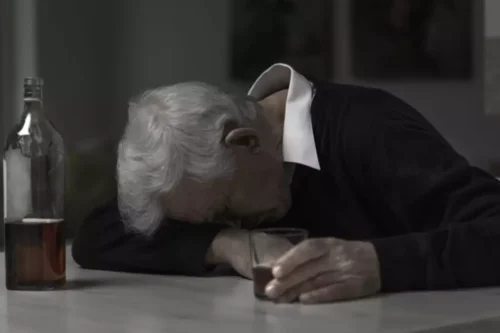
Lastly, this being a study, it is very possible that participants were better motivated, more informed, and more likely to put in the effort required to use the moderatedrinking.org program. Future work would need to assess the effectiveness of this tool in the field without such interference. The population controlled drinking vs abstinence of people who use MM is pretty well educated and is made up for the most part of problem drinkers rather than those meeting full-blown alcohol dependence criteria. The idea is to teach problem drinkers more responsible drinking habits so that they don’t devolve their habits into all-out alcoholism.
Moderation vs. Abstinence: Should You Cut Back or Quit Drinking Completely?
However, moderation could also be a way to wean yourself off a chemical or psychological dependence. The idea is that there will come a point where you’ll be able to retake control of your life. For the majority of people, drinking alcohol after being sober can lead to relapse. Therefore, it is not recommended to have even one drink while in recovery. By addressing these challenges head-on, those committed to sobriety can enjoy the many benefits of a sober life, such as improved physical and mental health, better relationships, and increased self-confidence. Supportive friends and family members play a crucial role in addiction recovery, offering understanding and respect for the individual’s decision to remain sober.
- It appears that although abstinence is, for many, not a requisite for overcoming an AOD problem, it is likely to lead to better functioning and greater well-being.
- Understanding the risks of returning to alcohol after sobriety, the complexities of alcohol use disorder, and the benefits of a sober life can empower individuals to make informed decisions about their recovery journey.
Addiction and Ultra-High Net Worth Families: the Best Treatm…
When considered as an entire sample of 84 individuals, participants evidenced significant reductions in all three outcomes over the 7 week intervention period (total drinks, drinking days, and drinks per drinking day). Many individuals with an alcohol use disorder that wish to change their drinking, however, have a goal of moderation – sometimes referred to as “harm reduction” – rather than complete abstinence. Indeed, moderation appears to be a viable pathway to alcohol use disorder remission for some. Identifying who will be most likely to respond to these moderation-focused alcohol treatments will be key to clinical recommendations and policies related to moderation versus abstinence. While the burden to deliver effective treatments falls on health care providers, individual factors can impact how well someone responds to these treatments. Among the most widely studied are how motivated and confident someone is in being able to reduce or quit drinking.

Underlying Issues of Addiction: Emotional Abuse
- You also don’t need to have a clear understanding of your goal to start making progress.
- Learn more about moderation with Ria Health, or find out how our program works.
- You can have an occasional drink without feeling defeated and sliding deeper into a relapse.
- At Silicon Beach Behavioral Health, our mission is to ensure that every person can reach his or her full potential.
If you are just starting your recovery program it may take time to make a decision on a commitment to abstinence before it is really firm in your heart. It needs to be something that you are really committed to and not just something you would like to do. If you don’t consider yourself an alcoholic or don’t feel comfortable labeling yourself one, practicing moderation helps you avoid having that discussion when you’re not in the mood. You don’t have to attend https://ecosoberhouse.com/ AA meetings and introduce yourself as an alcoholic, and you don’t have to answer questions at parties or social gatherings when people notice you aren’t drinking. Moderation offers a path to sobriety without completely eliminating drinking. Limiting the amount of alcohol you drink, or taking breaks from drinking alcohol, are ways to get your alcohol problem under control while providing space for you to address the issues that power your drinking.
Reasons Abstinence From Alcohol May Be the Best Choice

Using ratings, they confirmed how participants were viewing the scenarios. Participants were also asked the strategy (abstinence versus balancing) they would recommend for that goal conflict. People were more likely to recommend abstinence for incompatible conflicts than for resource dilemmas. Participants were asked, “Which of the following substance use and/or mental health conditions have you ever been diagnosed with?

Common Myths about Addiction

At Silicon Beach Behavioral Health, our mission is to ensure that every person can reach his or her full potential. When you surround yourself with others who moderate their drinking, it’s much easier to moderate your own intake. (Surely, you’ve heard that you should surround yourself with the people you want to be like?) Because many people have an unconscious desire to conform, you can essentially turn peer pressure toward alcohol in the other direction. The US Department of Health & Human Services recommends no mo than 2 drinks per day for men and only 1 drink per day for women. If drinking more on certain days than others, then it’s recommended that men drink no more than 14 drinks in a week for men and 7 drinks in a week for women. Of course, these amounts are “standard” drinks, meaning that we’re talking about the amount of alcohol in the beverage rather than the drink itself.
- To be honest, people make no secret of the fact that moderation management is not the only way to take moderation into account.
- Alcohol had taken its toll—her job, friends, family, and health had all suffered—and she wanted it out of her life.
- Many treatment facilities require that their “clients” remain substance-free, which may deter those wanting to adapt their relationship with alcohol.
- Finally, the researchers engaged in a real-world exploration of this issue during the acute phase of the COVID-19 pandemic.
- Abstinence is not the only solution for recovering from alcohol use disorders, but it is one of the most studied and successful methods for recovering from alcohol use disorders.